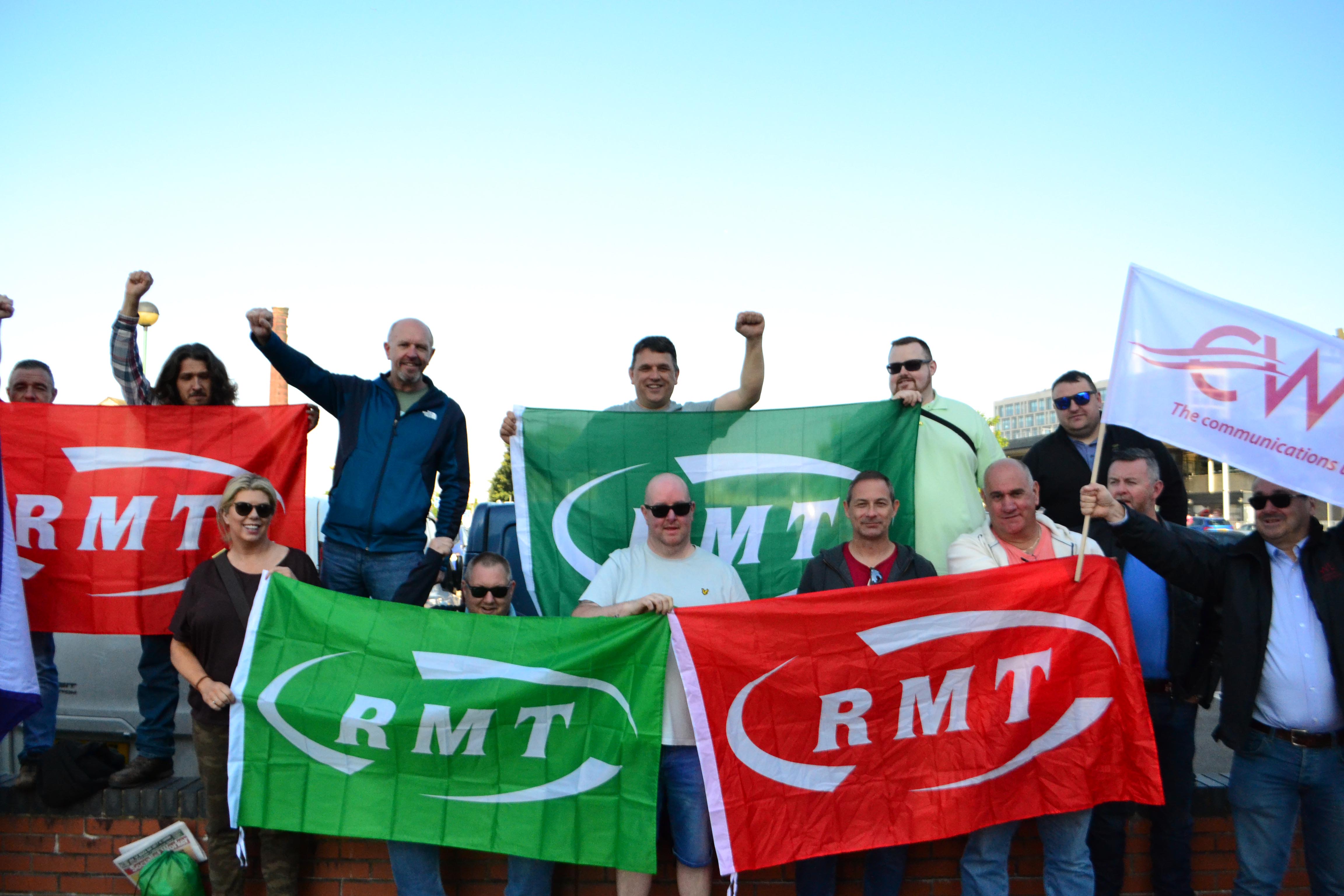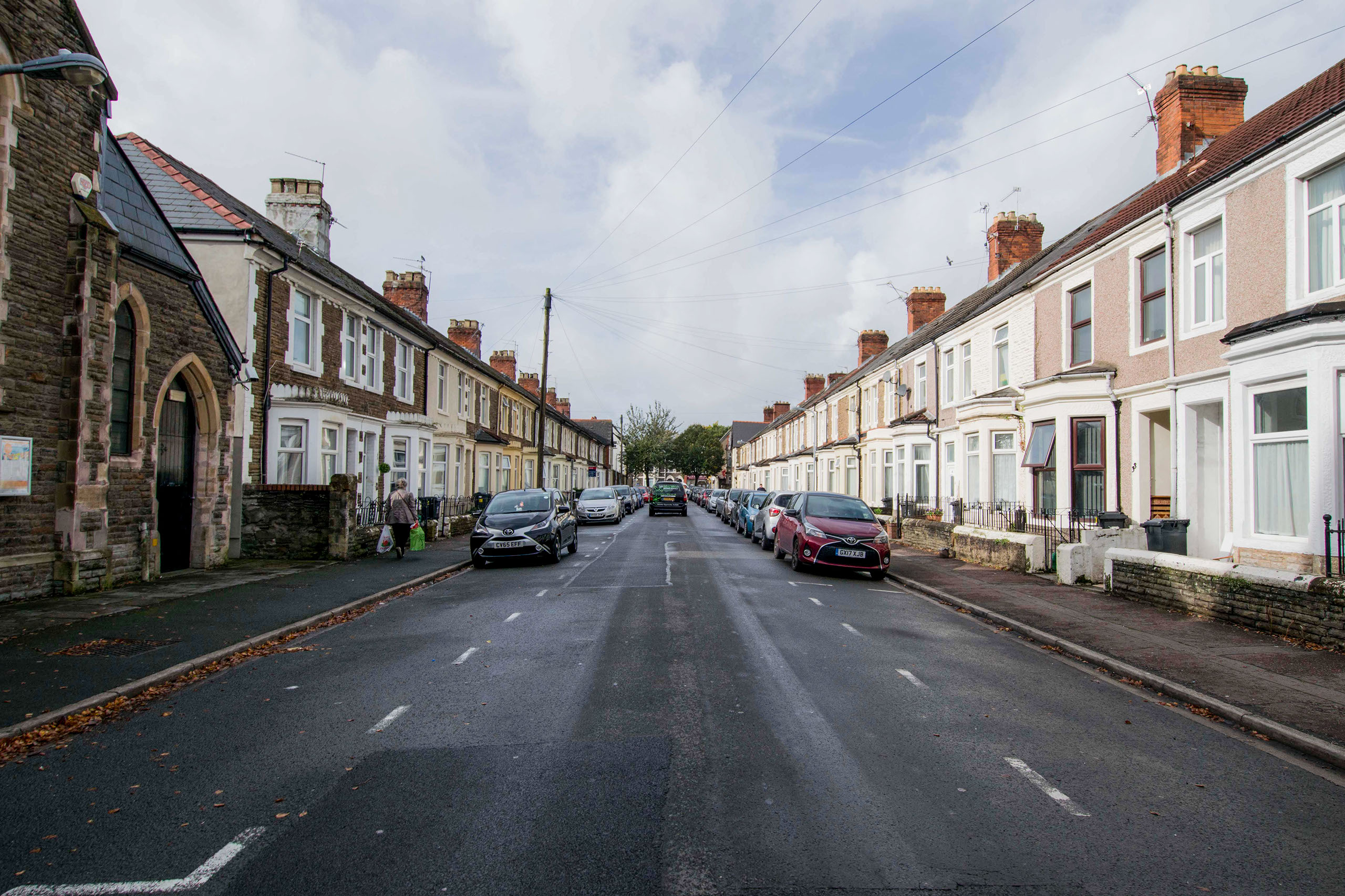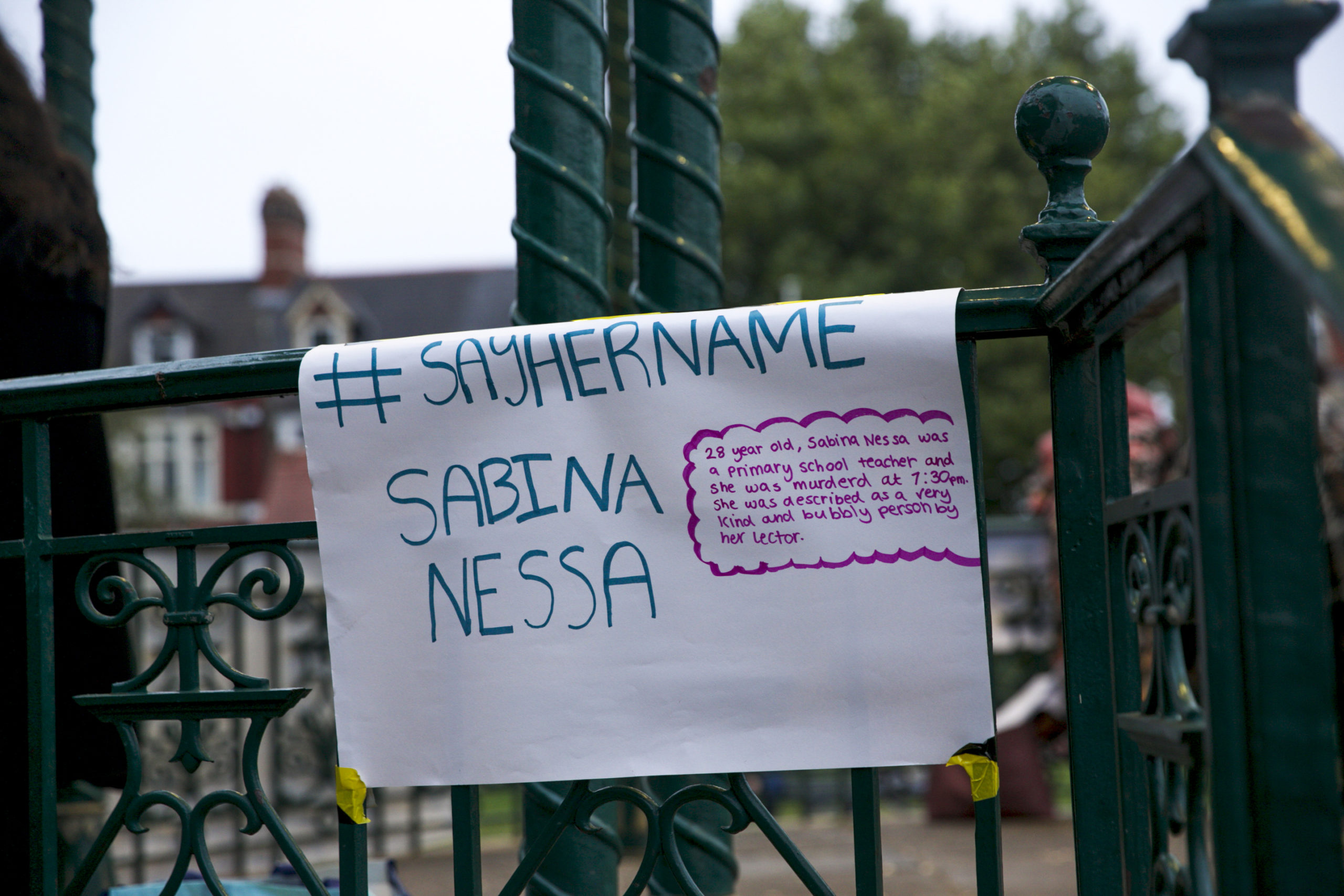
RMT Strike Signals Mood To Resist Historic Assault On Workers
RMT workers began a major three day strike on Tuesday with huge picket lines and high levels of public support, as trade union activists said the mood was shifting in favour of action over pay in the face of soaring inflation.
The rail strike, which affected the whole of Britain, caused widespread disruption as workers pushed back against a below-inflation pay deal and cuts to jobs.
It came just days after a 75,000 strong protest in London organised by the TUC and as more unions signalled their willingness to coordinate action – raising the prospect of a general strike.
Whilst the RMT are not in dispute with Transport for Wales, Welsh rail workers in mainline services and with Network Rail did take part in the strike. Picket lines were held at various train stations in Wales.
At the large Cardiff picket line, around 35 people gathered, the majority of the crowd being solidarity delegations from other unions including Unite, the CWU, FBU, PCS, Bectu, UCU, Wales TUC Cardiff Trades Council and Cardiff People’s Assembly.
Trevor Keen, Cardiff Rail Branch Secretary of the RMT, told voice.wales that workers were striking against “four billion pounds worth of cutbacks the government is trying to impose.”

“This is going to lead to less security measures on the railway,” he said.” They’re trying to cut back on the maintenance crews at Network Rail, they’re attacking terms and conditions, they’re looking to attack our pensions, this is just not acceptable.”
He said that most workers had had their pay frozen for the past two years.
“Despite numerous attempts at negotiation, the tops are just not interested… So we have to stand our ground and make our voices heard.”
Trevor said that workers were determined to see the action through, and had been buoyed by the level of support at the picket line and at the TUC demonstration on Saturday.
“The mood is very positive, it’s very upbeat,” he said. “We’ve had tremendous support from sister unions and members of the public… And that mirrors what we saw in London on Saturday, there was a huge public support for us.”
“People are just sick to death of the cutbacks of austerity and things need to change,” he added.
The strike dominated the news throughout the day. RMT General Secretary Mick Lynch appeared on mulitple broadcasters, resulting in a series a viral clips showing him casually rebffufing various lines of attack.
It provoked the actor Hugh Laurie to say that whilst he wouldn’t comment on the strike itself, the union leader had “cleaned up every single media picador who tried their luck…”
Lynch has not been afraid to put the strike in the context of a decades long assault on working class people by the rich, and position organised workers as a force that can redress the imbalance.
He told Radio 4 on Sunday that a general strike would be a welcome sign of all working class people fighting back.
“We’ve got a society that’s completely skewed,” he said
“There are more billionaires than we’ve ever had. Profits and dividends and the stock market are in a very healthy position while working people with full employment are having to take state benefits. That means the rich are doing too well compared to the working class.”
The RMT’s approach has helped shift the public mood behind rail workers, with a poll yesterday showing that two thirds of people were sympathetic to the strike.
The Tory government have also been taken aback by the action amidst disarray in Johnson’s government over how to respond to the soaring cost of living.
Their attacks on the RMT, who are resisting a 2% pay award when inflation is around 11%, have shattered Boris Johnson’s previous commitment to make Britain a high wage country.
According to the Financial Times, his government is hoping to peg public sector pay rises at just 2%, but are fearful that public sector unions are moving towards strike ballots and talking up the idea of coordinated action.
The National Education Union announced this morning that it had sent a letter to the government warning of a teachers’ strike this autumn unless they commits to an ‘inflation-plus’ pay rise for workers.

Cerith Griffith, an executive council member of the Fire Brigades Union (FBU) who was at the Cardiff picket line, said the combination of rising costs and falling pay was pushing more workers into wanting to take action.
“We’re at the point now where people aren’t able to heat and they aren’t able to eat either, and people are cutting back on on everything,” he told voice.wales.
“It’s only so much you can take and then you get to a point where people have got no option but to take strike action.”
He said that the large turnout and atmosphere at the march on Saturday showed that the attitude of workers was shifting.
“We’re seeing a situation where a number of trade unions are now balloting… lots of different unions are now starting to talk about coordinated action,” he said.
“I think workers are gaining a bit more confidence, but also they know that if they don’t do anything, it’ll be sink or swim, and it’ll be actually sink.”
“The mood has shifted,” he added, “because we face making a choice.”
“I’ve heard reports now that children aren’t going to school because they can’t afford the school uniforms. It shows the level of poverty that we’re dealing with.”
Photo Reel, scroll for images









